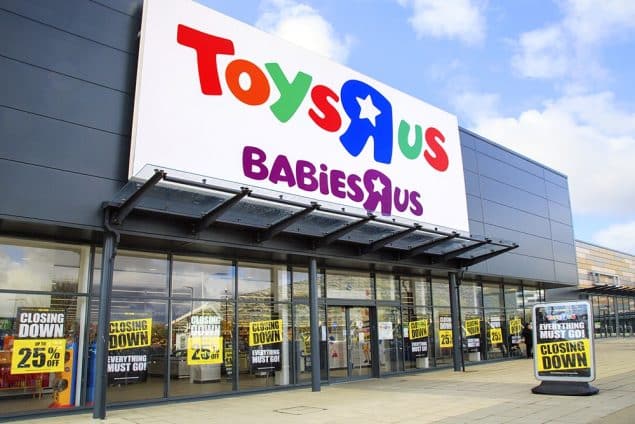Home » UK Business News » 10 Much-Loved British Businesses That Are No Longer With Us
10 Much-Loved British Businesses That Are No Longer With Us
https://www.whatjobs.com/news/united-kingdom/uk-business-news/10-much-loved-british-businesses-that-are-no-longer-with-us

By Hugh Fort in UK Business News, posted April 21, 2024

British business is ever-changing, which means hundreds of companies are formed every year.
Sadly, huge numbers fail.
Some go on to become massive billion-pound corporations, while others remain small but successfully operate for years and years.
Others grow and spread around the country.
But the ever-evolving nature of business means even established companies can suddenly fail, even those that have become a staple of high streets around the country.
Here are 10 much-loved British businesses that are no longer with us.
Woolworths
Woolworths branches were seen on high streets around the UK until 2009.
It collapsed due to increasing competition, changing consumer habits, and failing to adapt the the changing landscape.
It struggled to react to the rise of online shopping and went out of business 14 years ago after around a century of existence.
British Home Stores (BHS)
BHS, owned by the millionaire Sir Phillip Green, collapsed in mountains of debt and pension liabilities in 2016.
The company failed to modernise and keep up with changing trends, which led to massive drops in sales and the closure of all its stores by August 2016.
Thomas Cook
Thomas Cook was a highly popular high-street travel agent.
It went bust in 2019 due to high debts, fierce competition in the travel industry and changes in consumer travel habits.
It struggled to adapt to the online market, which led to its collapse in 2019 with massive job losses.
Blockbuster UK
Blockbuster was once a dominant video rental chain, but it collapsed after being slow to react to the rise of online streaming services.
Netflix, in particular, had a massive effect on the company, as it had both streaming and mail order services, leaving little demand for physical rentals.
Blockbuster filed for bankruptcy in 2010.
The story of its battle with Netflix can be found here.
Looking to boost your online brand? Create your FREE business profile atWhatBiz? Here
Maplin
Maplin was a retailer of electronic goods.
It collapsed in 2018, unable to compete with online retailers like Amazon which offered the same goods at lower prices.
Mounting debts meant the end in February of 2018, leading to the closure of all its stores.
Poundworld
Poundworld was the victim of the UK's saturated discount retail sector.
Rising operational costs and difficult market conditions, as well as competition by other companies offering more-or-less the same thing meant Poundworld went into administration in June 2018
Mothercare
Mothercare, which sold items for expectant parents and young children, was another to collapse when faced with high operational costs, intense competition both online and from budget retailers, and a failure to adapt.
It was faced with competitors who offered lower prices, which led to it going into administration in the UK in November 2019.
It still operates internationally.
Debenhams
Debenhams was a prominent department store in towns around the UK.
But, again, it collapsed due to a failure to adapt quickly to the changing retail landscape.
It was massively hit by shoppers choosing to buy online as well as a general decline in the department store sector.
It went into administration in 2020, which led to its huge stores closing and the sale of the brand and website to Boohoo, an online fashion retailer, in January 2021.
Toys 'R' Us
Toys R Us, and its famous mascot Geoffrey the Giraffe, was a common sight in retail parks around the UK.
But it collapsed in 2017 due to massive debts, fierce competition and its failure to adapt to changing consumer behavior.
It went bankrupt in 2017, which led to closures in the UK, and the US.
The good news is that Toys 'R' Us is back in 2023, albeit in online form.
There are no plans for any brick and mortar stores.
Need Career Advice? Get employment skills advice at all levels of your career
Flybe
The British airline Flybe has the ignominy of collapsing twice.
It collapsed for the first time during the during the early Covid-19 pandemic in 2020.
2,400 jobs were lost.
I was bought out by Thyme Opco, linked to US hedge fund Cyrus Capital, and renamed Flybe Limited.
It resumed operation and planned for hundreds of weekly flights across various routes.
However, it went into administration again, leading to more job losses.
Follow us on YouTube, X, LinkedIn, and Facebook












